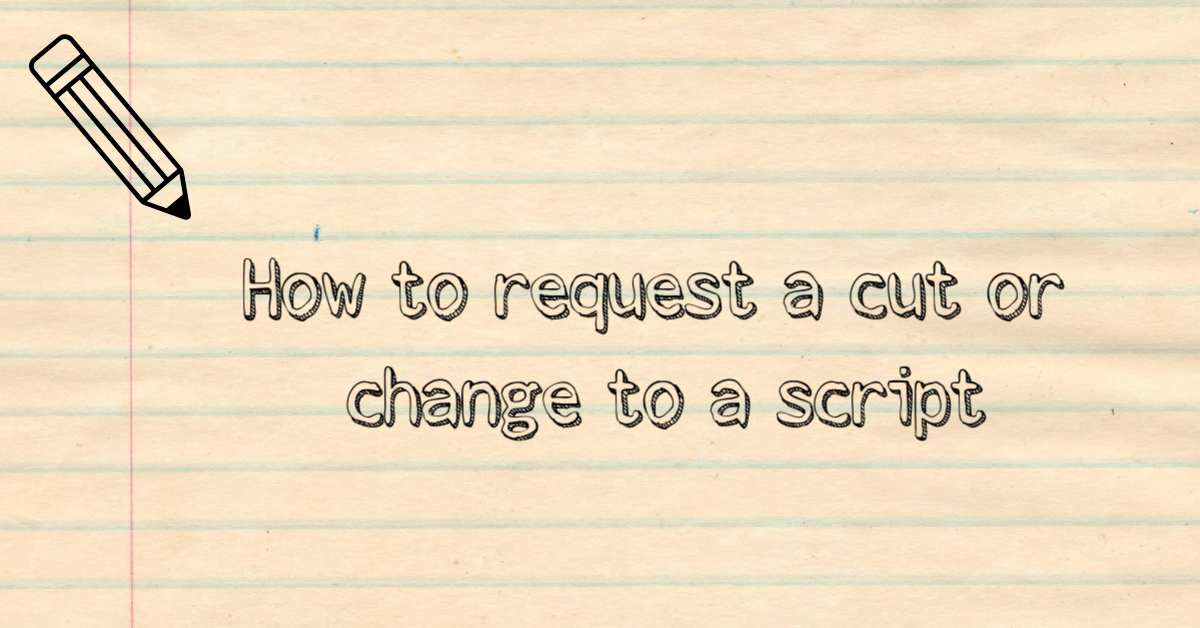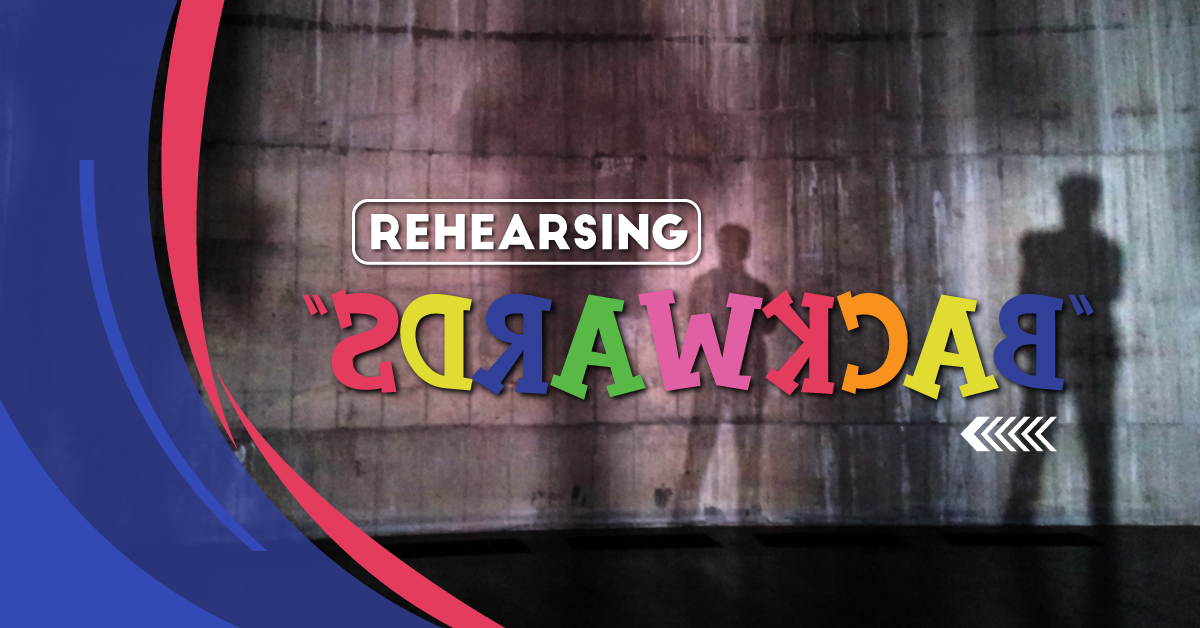How to request a cut or change to a script
“The play runs too long. We’ll get disqualified.”
“My administration won’t let us say the word ‘cigarette’.”
“I have more girls auditioned than guys.”
In the professional world, changing the script is a big no-no. What the playwright puts on the page is what is supposed to end up on the stage. The length is the length. The genders stay the same. If a word puts someone off, don’t do the play. Certainly changes still happen without the playwright’s permission, but that’s another story.
In the educational world, the spirit of that law is always in place but there are other factors in play.
- You’re dealing with students.
- You’re dealing with parents.
- You’re dealing with administrators.
And if you don’t take these groups into consideration there will be consequences beyond not doing a play. That is a fact and that can’t be ignored. It creates a situation where you have to request a cut or a change from a playwright/publisher.
This is something that publishers are aware of. Here at Theatrefolk we are very much aware of it. We get cut and change requests every day. Most of the time, it’s a question of running time for a competition. This particular request came in so often that we put together competition-length cuttings of a few of our plays.
Another request that comes in a lot is the gender change. A director holds auditions and fires off an email to us: “Can this part be played by a girl?”
In general our customers are great when it comes to change requests. We get many emails that agonize over their requests because they love the play and the understand what it means to cut or change it.
But this is not always the case.
There’s a right way, and a less than right way to ask for cuts and changes.
The Neglect Quartet
The Mind Slipper: It’s the week before opening. On direction from her administration, Sheila has already made the cuts and removed one of the characters. But she forgets until the last minute to contact the publisher prefacing her email with “Hope you don’t mind…”
The Presumer: Dan buys thirty scripts, the royalties for three performances, and then emails the publisher about cutting the play to fit the rules of his district competition. He is astonished and outraged when the playwright declines the request and he’s unable to do the play.
The Visioneer: Bethany wants to change the gender of a character from male to female. She writes the playwright a long impassioned email. She talks about her vision for the character, how she sees the character as a girl. It should be a girl. The playwright respects her passion but explains the role was written as a guy, for a guy and can’t be changed. Sheila writes a second email begging the playwright to change her mind. And then a third. And a fourth.
The Presumptist: Jim makes changes to the script and never bothers contacting the publisher. He believes he is well within his right to make those changes.
Our quartet all have one thing in common. They put other interests ahead of the script. The cuts and changes may be made with the best of intentions, or based on a ruling from administration, but the bottom line is you can’t make a cut or a change without written permission from the publisher/playwright. The play has to be performed as-is unless you have written permission from the publisher/playwright. No exceptions.
Think of the script like a rental car. If Sally rents a blue car and decides it would look better in green, will the rental company be overjoyed when she a freshly painted green car?
So what do you do?
Respect your time
It’s possible you won’t get an immediate response from a publisher for your request. Behind the scenes, a chain of conversation has to take place. You email the publisher. the publisher emails the playwright. The playwright emails the publisher. The publisher emails you. Sometimes there’s an agent between the publisher and the playwright.
So make sure you place your request in plenty of time to make alternate arrangements. Never put yourself in a situation where you’re going to have to scramble. The best time to reach out to the publisher is before you choose the script, before you buy the scripts/royalties, before you hold auditions. It’s not fair to you or to the publisher to say, “I need an answer tomorrow because I start rehearsals next week.” If you don’t get a response, don’t assume it’s okay just to go ahead and make your cuts. Be persistent.
Respect the playwright’s intention
Remember that the publisher is going to be speaking to the playwright on your behalf. Get them on your side! Be kind in your request. Acknowledge the playwright’s contribution. Talk about why you chose the play. Be specific in your request. And give yourself lots of time to get a response back.
It’s important that your director’s vision should reflect what’s on the page. All of these suggestions have come across our desk over the years:
- “I want to change this character to a girl because I want to play her.”
- “My students were so inspired by the play they wrote an extra scene, we can put it in can’t we?”
- “Witches are against our religion, so we can’t have those characters in the play.”
- “The school board has said we’re not allowed to say the word Christmas.”
When you’re putting together a request for cuts/changes, think about why you chose the play, what speaks to you about the play, and how your cuts/changes maintain the playwright’s intention.
Be specific
Changes and cuts happen in educational theatre. They happen all the time and publishers know this. But you have to be specific.
Instead of “we need permission to make changes” be specific with your request and the reason for your request. That reason is a huge one. Is the cut for competition? Is it two lines or a hundred? Are you cutting because the administration is breathing down your neck about a word?
The playwright put a lot of time and effort into the script and hearing the reasoning can help them with their decision.
Be prepared to hear “no”
The playwright has the final decision when it comes to cuts and changes. It’s their property both legally and morally. They have the right to say no to any cut or change.
Assume you’re going to hear no and have a back-up plan in place. That way you can be pleasantly surprised when your request is accepted!
The most important reason to ask permission
Someone is watching you. Your students are watching what you do and how you do it. If you tell a student it’s okay to make a cut without permission, they’re going to think it’s okay. Why would they think anything different? Time and time again we hear from young teachers that they do things to scripts because their own teacher did them.
If you respect the script then show your students it’s important to respect the script. That is a valuable lesson for them to learn.



